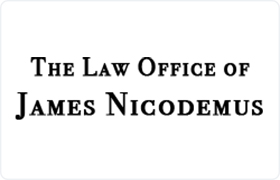River Forest Real Estate Other Lawyer, Illinois, page 2
Sponsored Law Firm
-
 x
x

Click For More Info:
-
The Law Offices of James Nicodemus
2700 Patriot Blvd Suite 250 Glenview, IL 60026» view mapReal Estate Law Experienced Real Estate Lawyer
When you need accurate representation, whether it’s a divorce lawyer, family lawyer or child custody attorney, James Nicodemus is there for you.
800-986-5891
Includes: Commercial Leasing, Commercial Real Estate, Condominiums, Conveyancing, Housing & Urban Development, Premises Liability, Residential Real Estate, Title Insurance
Thomas J. Polinski
Guardianships & Conservatorships, Real Estate, Wills & Probate, Commercial Real Estate
Status: In Good Standing Licensed: 39 Years
Joshua M. Martin
Commercial Real Estate, Foreclosure, Litigation, Bankruptcy, Personal Injury
Status: In Good Standing
Jeffrey Whitcomb
Condominiums, Real Estate, Transactions, Business & Trade
Status: In Good Standing Licensed: 38 Years
Jeffrey Logan Whitcomb
Condominiums, Commercial Real Estate, Transactions, Business
Status: In Good Standing Licensed: 38 Years
Anthony James Zac
Commercial Real Estate, Landlord-Tenant, Real Estate, Civil Rights
Status: In Good Standing
Walter Wade Morrissey
Commercial Real Estate, Estate Planning, Corporate
Status: In Good Standing Licensed: 52 Years
Katherine Jo Eder
Employee Rights, Litigation, Transactions, Condominiums
Status: In Good Standing Licensed: 20 Years
David Edward Hoy
Condominiums, Estate Planning, Transactions, Business
Status: In Good Standing Licensed: 41 Years
 James Nicodemus Glenview, IL
James Nicodemus Glenview, IL AboutThe Law Offices of James Nicodemus
AboutThe Law Offices of James Nicodemus Practice AreasExpertise
Practice AreasExpertise
